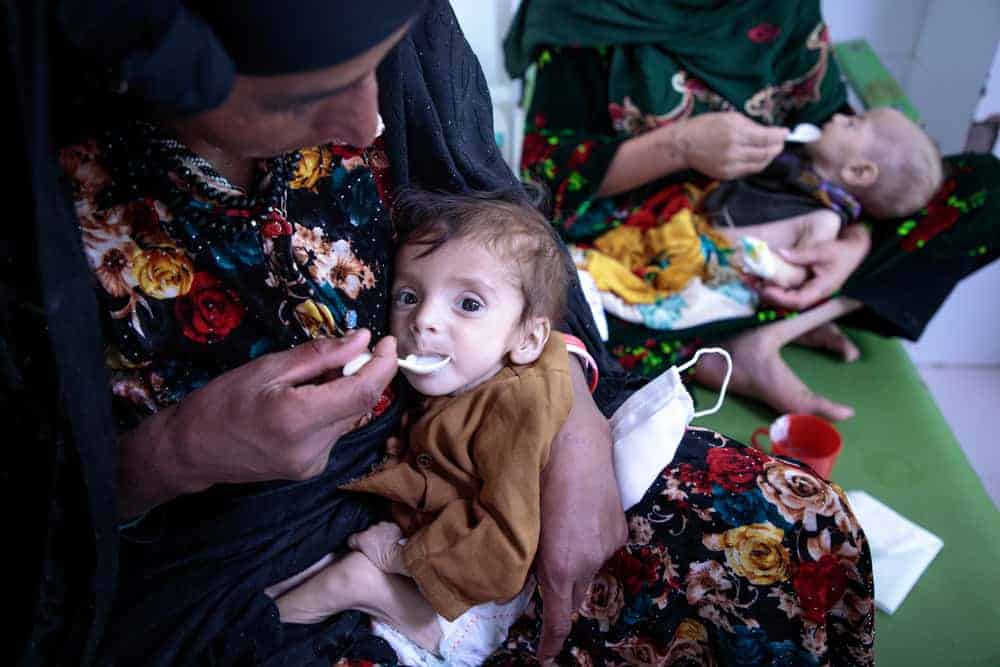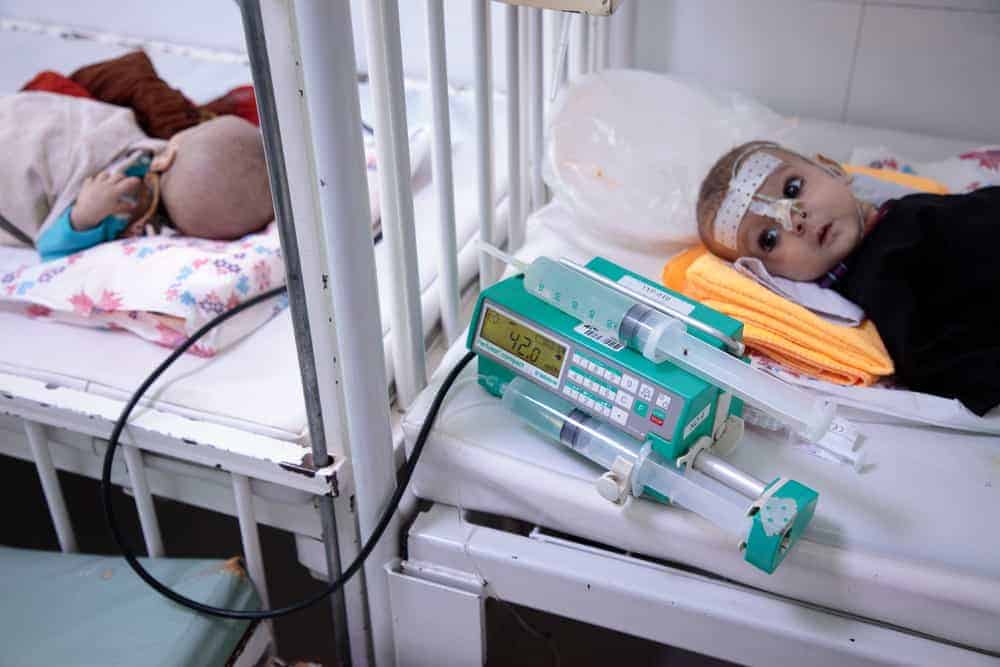The Afghan healthcare system has been fragile and plagued by major gaps for years now, and the suspension of international aid as a result of the recent political developments has further deteriorated the situation. In Herat, Doctors Without Borders/MSF teams are witnessing a worrying increase in malnutrition, says Mamman Mustapha, former Project Coordinator for in the province.
What has the health situation looked like in Herat over the past couple of months, since the Taliban took over?
The healthcare system is at risk of collapsing in the whole country, while needs are huge, and this is also reflected in what we observe in Herat. Access to care was a major issue in Afghanistan well before the Taliban takeover, but today the situation has further degraded, as most of the international aid has been suspended, including the World Bank funding of the WHO basic and essential care programmes covering Herat’s province.
Health facilities in the area are either closing or reduced to providing minimum services with whatever residual resources are available. We have no visibility on what is going to happen to these facilities. People are jobless and poor, they cannot afford private care, some of the humanitarian organisations previously working in the area are yet to resume their activities in full.

“Between May and September 2021 we observed nearly a 40% increase in the number of admissions to our ITFC programme compared to the same months in 2020.”
– MAMMAN MUSTAPHA
FORMER PROJECT COORDINATOR FOR IN HERAT, AFGHANISTAN
Herat Regional Hospital, where MSF runs an in-patient therapeutic feeding centre (ITFC), lost some of its key staff as the director and some of its most senior medical personnel, who left the country just before the fall of the city to the Taliban. The result has been a lack of governance in the hospital and many administrative challenges. Outside of the MSF-run ITFC, salaries have not been paid for five months, there are not enough medical supplies, no money to pay maintenance. Meanwhile, wards are full of patients. In a nutshell, needs are everywhere and the system is failing.
Many, including the United Nations, indicated that malnutrition is a major crisis at the moment in the country. What do we observe through our nutrition programme?
Our indicators show that malnutrition is indeed a major issue. I’d probably define it as a looming crisis that had started well before the recent events. Between May and September 2021 we observed nearly a 40% increase in the number of admissions to our ITFC programme compared to the same months in 2020. The malnutrition peak this year exceeded its usual levels in terms of both intensity and duration: we expected a decrease in September, whereas we actually observed a further increase in the number of cases.
Lately, the situation has become even worse. Our ITFC has been extremely busy, with over 60 new admissions each week and the number of hospitalised patients reaching more than double our maximum capacity, which prompted the decision to increase the number of beds. Many of our patients and their families travel more than 15 kilometres to seek medical care, while some come from as far away as Badghis, Ghor and Farah provinces, well over a hundred kilometres away.

The recent attacks in Kunduz and Kandahar were a shocking reminder that insecurity is still a concern. Are we worried about the safety of our teams in the area?
First and foremost, we endeavour to let the community know that we are there to provide medical assistance and not to take sides in any conflict. Our main assets are our impartiality and the quality of the services we provide, in respect of the local culture.
Having said that, the attacks in Kunduz and Kandahar were indeed shocking. They were claimed by the Islamic State in Khorasan Province (ISK), which has a history of targeting groups like Shia and Hazaras (large communities of both live in Herat) and generally speaking harmless civilians in the country. This threat may possibly have been exacerbated by the recent phase of instability. We do our best to monitor the context and minimise the risk of being caught in an attack, while knowing that there is no way to completely eliminate such risk, which actually applies to anybody in Afghanistan, including Herat.












